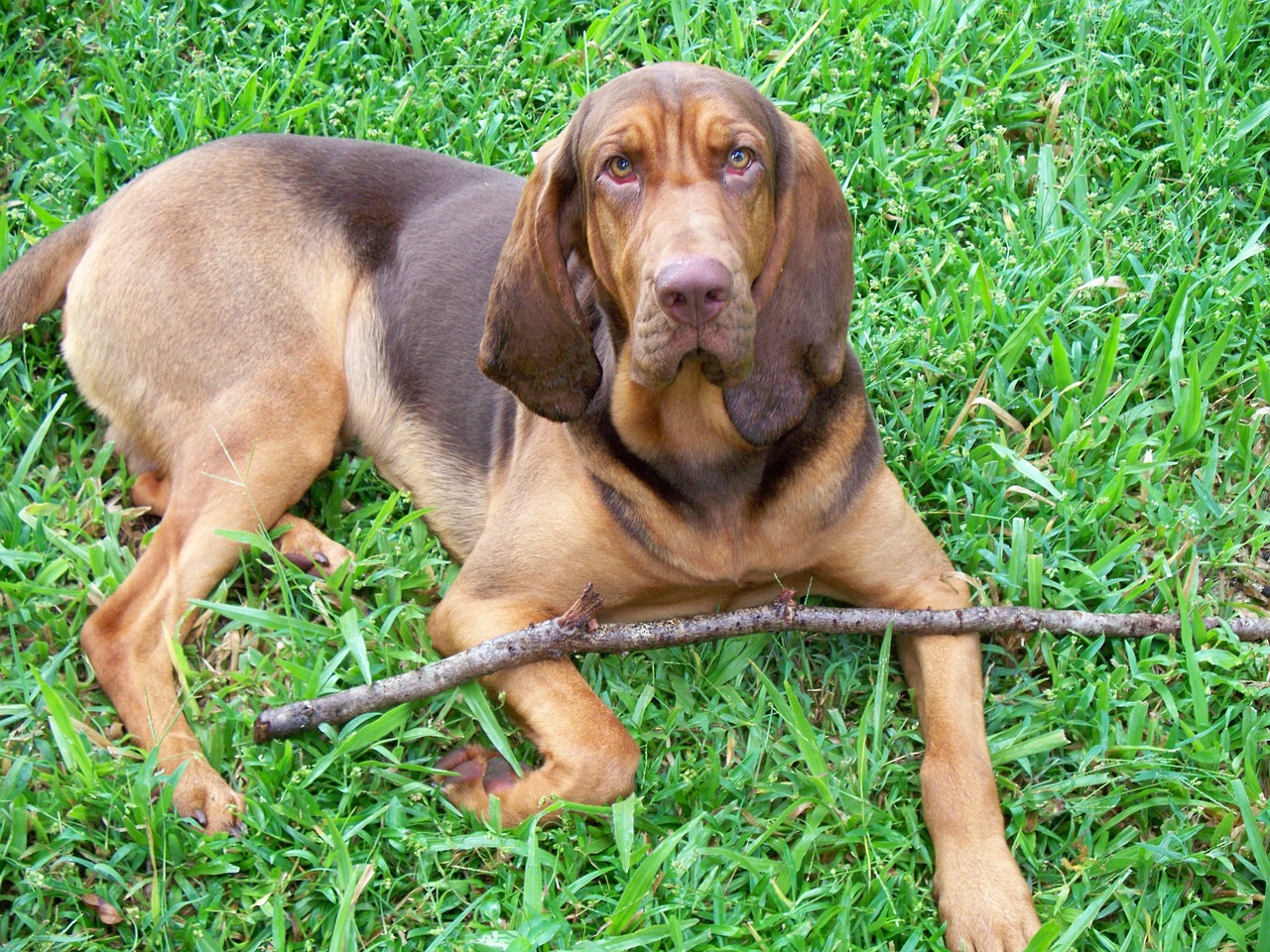
[ad_1]
Bloodhounds, with their distinctive droopy ears and solemn eyes, are a breed steeped in history and renowned for their unparalleled scent-tracking ability. Originally bred for hunting deer and wild boar, they have evolved into excellent working dogs, particularly in law enforcement. While they are gentle, affectionate, and devoted pets, owning a Bloodhound comes with unique challenges. Potential owners must understand these aspects to ensure they can provide the right home for these noble dogs. Acknowledging these challenges not only helps in making an informed decision but also underlines the importance of responsible and prepared pet ownership while celebrating the breed’s unique qualities.
7 Reasons Why Bloodhounds Might Not Be Right For You
- Significant Exercise Requirements: Bloodhounds are energetic and require considerable daily exercise. They are not suitable for sedentary lifestyles and can become restless or destructive if their exercise needs are not met. Owners must be prepared to dedicate time each day to their physical activity.
- Training Difficulties: Despite their intelligence, Bloodhounds can be stubborn and independent, making training a challenge. They require patience, consistency, and positive reinforcement techniques. New or inexperienced dog owners might find training a Bloodhound particularly challenging.
- Prone to Health Issues: Bloodhounds are susceptible to various health problems, including hip dysplasia, ear infections, and eye conditions. Prospective owners should be prepared for the potentially high costs of veterinary care and the need for regular health checks.
- High Maintenance Grooming: Their long ears and wrinkles need regular cleaning and inspection to prevent infections. Additionally, their short coat requires routine grooming to manage shedding. This level of maintenance can be demanding for some owners.
- Strong Scent Drive: Bloodhounds possess a powerful instinct to follow scents, which can lead to wandering if they catch an interesting trail. This trait necessitates secure fencing and vigilant supervision, as they might ignore commands when tracking a scent.
- Vocalization: Bloodhounds are known for their deep, loud baying. This vocalization can be excessive at times, which might not be suitable for all living environments, particularly in urban settings or close-knit neighborhoods.
- Size and Space Considerations: As a larger breed, Bloodhounds require ample space to move around comfortably. Their size and energy level make them less suited for small living spaces, such as apartments or homes without yards.
Bloodhounds are affectionate, loyal, and have a unique charm, they do come with a set of challenges that are important to consider before bringing one into your home. Understanding these aspects is key to ensuring a happy and healthy life for both the dog and its owner, reflecting a commitment to responsible and loving pet ownership.
On The Other Hand…
5 Positive Qualities About Bloodhounds

- Exceptional Tracking Ability: Bloodhounds possess an unrivaled sense of smell and tracking ability. This makes them invaluable in search and rescue operations and law enforcement, as they can follow scents over great distances and even several days old. Their tracking skills are not just useful but often life-saving, making them a breed of significant importance and respect.
- Gentle and Good-Natured Temperament: Despite their size, Bloodhounds are known for their gentle, affectionate nature. They are remarkably patient and good with children, making them excellent family pets. Their kind demeanor extends to other animals as well, often showing a calm and friendly attitude toward other pets.
- Loyalty and Attachment to Family: Bloodhounds are incredibly loyal and form deep bonds with their owners. They thrive on human companionship and are known to be particularly attached to their family. This loyalty and love for their human companions make them not just pets, but devoted and beloved members of the family.
- Low Grooming Needs: Apart from their ears and wrinkles needing regular cleaning, Bloodhounds have relatively low grooming needs. Their short coat is easy to care for, requiring only occasional brushing. This makes them a good choice for those who prefer a dog that doesn’t require extensive grooming.
- Long Lifespan: For a large breed, Bloodhounds have a relatively long lifespan, often living between 10-12 years. With proper care, nutrition, and regular veterinary checkups, they can be a long-term companion, providing years of joy, loyalty, and unparalleled companionship to their families.
Bloodhounds, with their remarkable scenting abilities, gentle nature, and loyal disposition, offer a unique combination of qualities that make them more than just pets. They are loyal companions, gentle giants, and skilled trackers, embodying a blend of traits that make them beloved and respected in both the home and professional environments.
[ad_2]
Source link

Leave a Reply